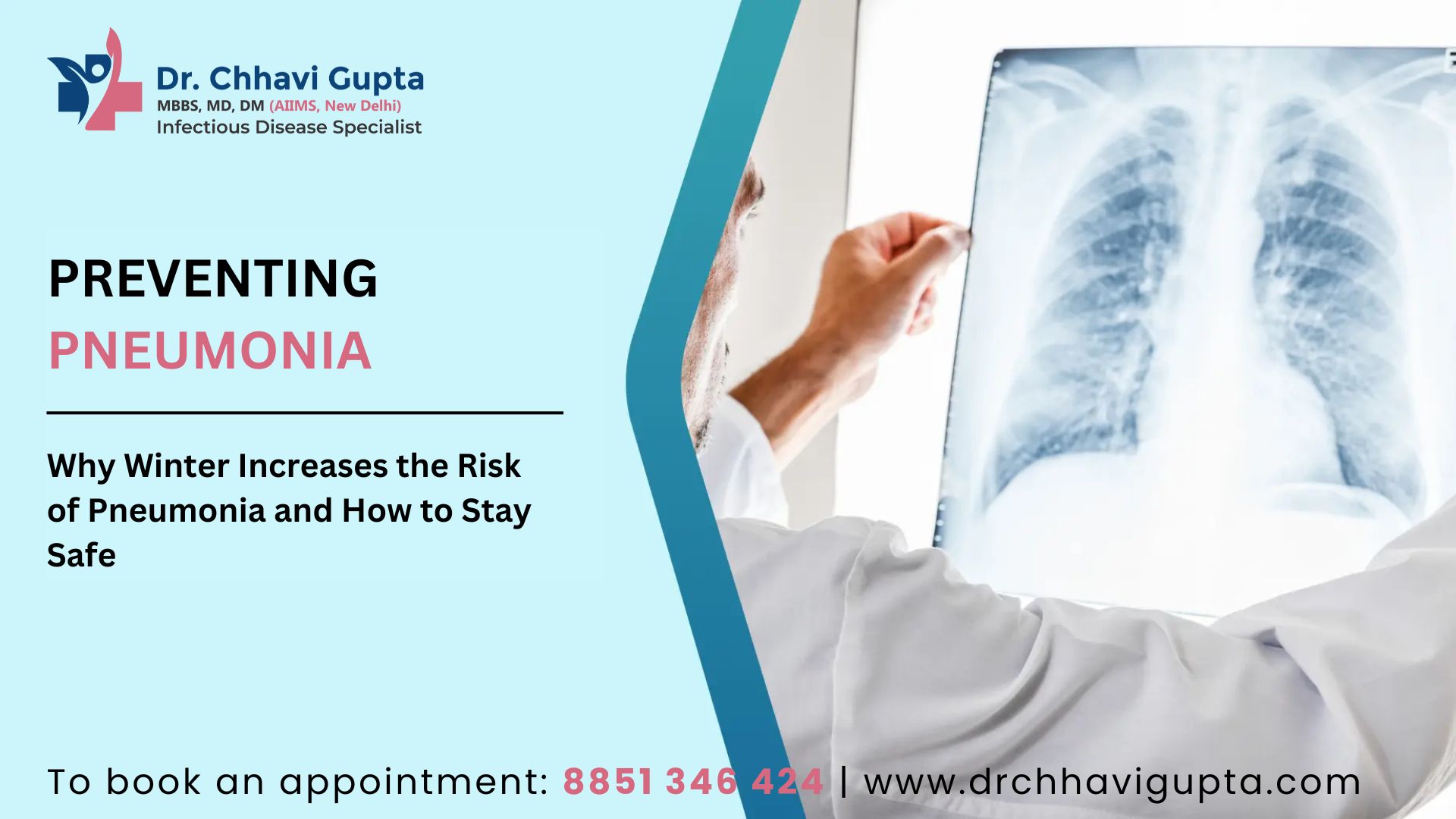Why Winter Increases the Risk of Pneumonia and How to Stay Safe
Winter brings with it chilly weather, cozy evenings, and unfortunately, a spike in respiratory illnesses, including pneumonia. Pneumonia, a lung infection that inflames the air sacs and fills them with fluid or pus, becomes more prevalent during the colder months. Understanding why winter increases the risk of pneumonia and taking proactive steps to stay safe is crucial for your health.
Why Does Winter Increase the Risk of Pneumonia?
- Weakened Immune System: Cold weather can weaken the body’s immune defenses, making it harder to fight off infections. This makes individuals more susceptible to respiratory illnesses like pneumonia.
- Increased Indoor Gatherings: People spend more time indoors during winter, often in close proximity to others. This creates an ideal environment for the spread of viruses and bacteria that can lead to pneumonia.
- Dry Air and Reduced Humidity: Winter air is typically dry, which can dry out the mucous membranes in the respiratory tract. This reduces their ability to trap and expel pathogens, increasing the risk of infections.
- Prevalence of Flu and Respiratory Infections: Influenza and other respiratory infections are more common in winter. These illnesses can weaken the lungs and immune system, paving the way for pneumonia.
- Chronic Health Conditions: For individuals with chronic illnesses like diabetes, asthma, or heart disease, winter’s challenges can exacerbate their condition and make them more prone to complications like pneumonia.
How to Stay Safe from Pneumonia in Winter
- Get Vaccinated: Vaccination is one of the most effective ways to prevent pneumonia. Both the pneumococcal vaccine and the annual flu vaccine are essential to protect against the bacteria and viruses that can lead to pneumonia.
- Maintain Good Hygiene: Wash your hands regularly, especially after coughing, sneezing, or touching shared surfaces. Use hand sanitizers when soap and water aren’t available.
- Boost Your Immunity: Eat a balanced diet rich in vitamins and minerals, particularly Vitamin C and zinc, to strengthen your immune system. Stay hydrated and get enough sleep to keep your body’s defenses in top shape.
- Stay Warm: Keep yourself warm by dressing in layers and covering your head and chest when outdoors. Use a humidifier indoors to prevent the air from becoming too dry.
- Avoid Smoking and Pollutants: Smoking and exposure to air pollution can damage the lungs and increase the risk of respiratory infections. Minimize exposure to these irritants to keep your lungs healthy.
- Practice Respiratory Etiquette: Cover your mouth and nose with a tissue or your elbow when you cough or sneeze to prevent the spread of germs.
- Seek Early Medical Attention: If you experience symptoms like persistent cough, fever, shortness of breath, or chest pain, consult a doctor promptly. Early diagnosis and treatment can prevent complications.
Who Is at Higher Risk?
Certain groups are more vulnerable to pneumonia, including:
- Older adults (65+ years)
- Infants and young children
- Individuals with weakened immune systems
- People with chronic conditions like diabetes, COPD, or heart disease
The Role of Vaccination
Vaccination is a cornerstone in preventing pneumonia, especially for high-risk groups. The pneumococcal vaccine protects against bacterial pneumonia, while the annual flu vaccine reduces the risk of influenza-related pneumonia. Both vaccines are safe, effective, and widely recommended by healthcare professionals.
Conclusion
Winter doesn’t have to mean falling ill. By understanding the heightened risk of pneumonia during this season and taking preventive measures, you can protect yourself and your loved ones. Stay warm, practice good hygiene, and prioritize timely vaccinations to ensure a healthy and safe winter.
If you have concerns about pneumonia or want to learn more about vaccinations, consult an infectious disease specialist. Dr. Chhavi Gupta, a Senior Consultant in Infectious Diseases at Yashoda Super Speciality Hospital, Kaushambi, is here to help.
Book an Appointment: +91 8851 346 424
Visit: drchhavigupta.com

